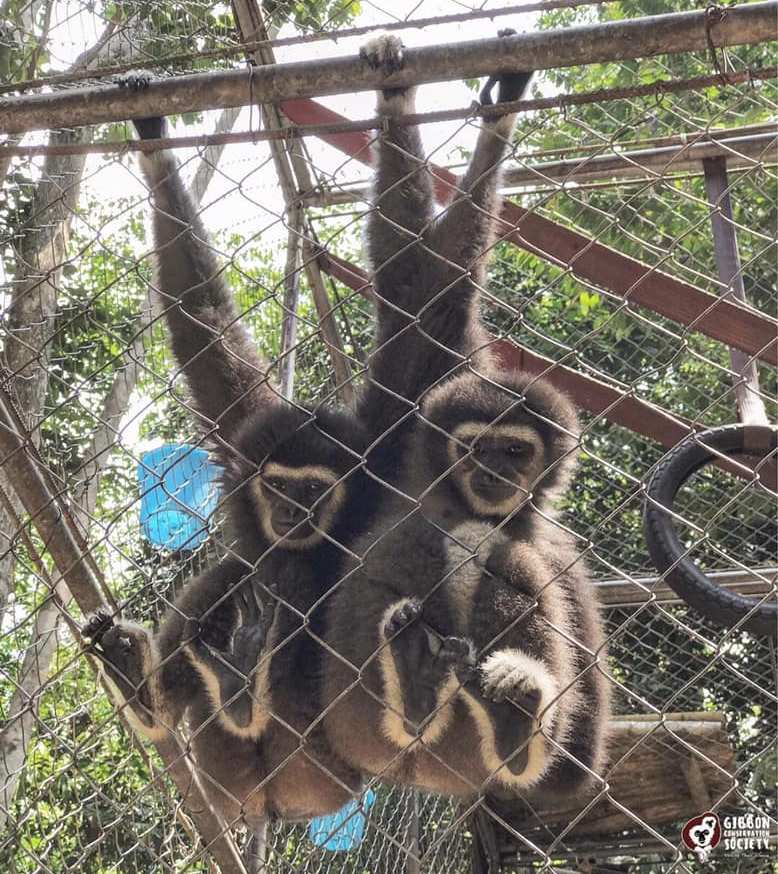KUALA LUMPUR, Jan 7 — The Gibbon Rehabilitation Project (GReP) has accused the Wildlife and National Parks Department (Perhilitan) of stonewalling efforts to check on the status of six gibbons that was forcibly removed from a rehabilitation centre in Pahang.
In a statement, its founder Mariani Ramli said that she had met with Perhilitan director-general Datuk Abdul Kadir Abu Hashim and his division directors on January 4 at the latter’s headquarters in Cheras to discuss the gibbons’ welfare, only to be given vague answers.
“During the raid and until today, Perhilitan has not asked us about the rehabilitation status of Daru, Daly, Bella, Betsy, Lola dan Chantiq,” she said.
“How can Perhilitan hope to continue their rehabilitation efforts without their history and information and how will Perhilitan be able to determine whether they are ready to be released or not?”
During the meeting, Mariani — who is also an International Union for Conservation of Nature (IUCN) certified specialist of captive care for small apes — questioned Kadir on the status of Chantiq, whom she believed was injured after stains resembling blood were found[a] during the second raid by Perhilitan on December 31, 2021.
Instead, Kadir had claimed that the blood stains came from leeches, while all the confiscated gibbons were in quarantine, in good condition, and showing stereotypical behaviours.
Kadir had also asked Mariani and GReP to stop posting rumours that he claimed could give Perhilitan a bad name, and to stop the petition against the confiscation of the gibbons.
Mariani refuted these statements by saying that one Perhilitan staff by the name of Che Ku Mohd Zamzuri had already confirmed in a Facebook comment that the blood on the basket and pole was gibbon blood, but the injury was due to the conditions of the cage.
Mariani also pointed out that the petition titled ‘Perhilitan: Return Six Seized GReP Gibbons and Stop Raiding the Centre’ was started by concerned citizens who were worried about the welfare of the six confiscated gibbons, rather than the organisation itself.
As of yesterday, a total of 13,946 people from all over the world have signed the petition.
Mariani’s efforts to get permission to visit the confiscated gibbons at the National Wildlife Rescue Centre in Sungkai was also denied by Kadir, with him saying that they have to wait until the hearing of the stay application filed at the Court of Appeal is determined.
Kadir added that Perhilitan would not allow anyone permission to visit the site anyway, but may share pictures of the Gibbons with them in the future.
Separately, Florian Magne — founder and director of the world’s sole Western Hoolock Gibbon rehabilitation programme called HURO — backed Mariani by urging Perhilitan to grant the IUCN access to these six gibbons so they can be monitored and evaluated by independent experts as soon as possible.
“One week after their capture we at the IUCN are left with no news about their fate, their captive condition, their social condition, their psychological condition or their health status.
“I am imploring Perhilitan to grant IUCN access to these six gibbons so they can be monitored and evaluated by our experts, totally independently, as soon as possible, in the best interest of everyone,” he said.
IUCN — whose mission is to influence, encourage and assist societies to conserve the integrity and diversity of nature — had previously audited GReP expertise and quality of care, and found that rehabilitation center to be satisfactory to their standards.
During the meeting, Mariani also brought up her many permit applications that have been shot down by Perhilitan on the grounds that the Wildlife Conservation Act 2010 does not have any provisions for rehabilitation.
GReP’s most recent application was on November 25, 2020, to which it has yet to hear back from Perhilitan.
Mariani then suggested that an open discussion be had with the Ministry of Water, Land and Natural Resources as well as Perhilitan to look into wildlife management in Malaysia and adoption policies in other countries where NGOs are able to operate rescue and rehabilitation centres in order to assist the government in rehabilitating wildlife and sending them back to the forest with proof of success.
GReP is a non-profit organisation working to conserve, protect and rehabilitate endangered gibbons who have been victims of the illegal wildlife pet trade in Malaysia.
On December 29, 2020, Perhilitan was reported to have forcibly removed four out of six gibbons undergoing rehabilitation at GReP, despite an ongoing and still unsettled court dispute on whether Perhilitan or its former employee Mariani — GReP founder and GCS president — should be the ones caring for the six gibbons.
News portal Malaysiakini had also reported Perhilitan officials as saying that the government department was acting in line with the Court of Appeal’s decision in a dispute between the government department and Mariani.
Malaysiakini had then reported Perhilitan enforcement director Pazil Abdul Patah as saying that the six gibbons belong to the department as Mariani had rescued the animals while working for the department, and that Perhilitan has the expertise to rehabilitate the gibbons and will do so.
Following the raids, GReP shared letters of support from international groups, including the International Union for Conservation of Nature — Section on Small Apes (IUCN SSA) which had urged for the gibbons to remain with GReP and commended Mariani as an accomplished primatologist specialising in rehabilitation and the only Malaysian certified by the IUCN SSA “for instigating successful rescue and rehabilitation of gibbons and siamang”.



















